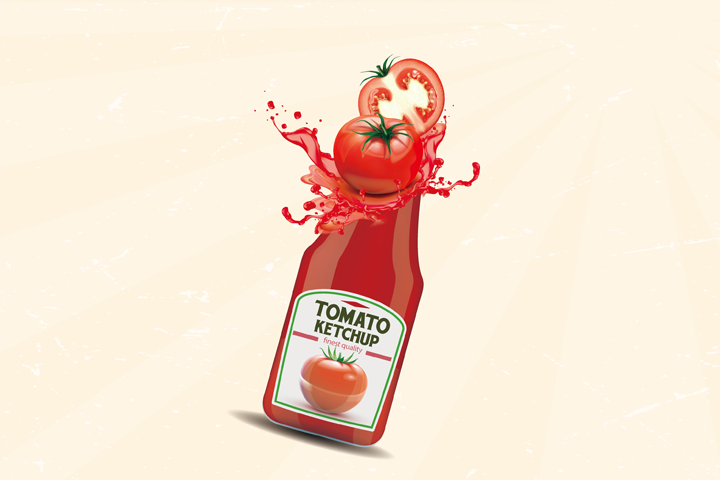Ketchup, that iconic red condiment gracing our burgers and fries, often sparks debate: is ketchup liquid or solid? While its thick texture might lead you to believe it’s a solid, the truth lies in the realm of liquids. This article delves into the science behind ketchup’s consistency, exploring its properties and ultimately answering the age-old question: is ketchup a solid or liquid?
We’ll begin by examining what constitutes a liquid and then explore the specific characteristics that define ketchup as one. Get ready to have your ketchup conundrums cleared up!
What is Ketchup?
Ketchup, at its core, is a condiment made primarily from tomatoes. This base is combined with sugar, vinegar, spices, and other flavorings to create the tangy, sweet, and savory taste we all know and love. The exact recipe varies depending on the brand, but the fundamental ingredients remain consistent.
Beyond its deliciousness, ketchup’s texture plays a crucial role in its appeal. It possesses a unique viscosity that allows it to cling to food while still flowing easily from a bottle. This balance of thickness and fluidity is what makes ketchup such a versatile condiment.
Properties of Liquids
To understand why ketchup is classified as a liquid, we need to look at the defining characteristics of liquids. Liquids are substances that take the shape of their container but maintain a relatively constant volume. They flow freely and can be poured or dispensed.
Another key property of liquids is their ability to diffuse, meaning they spread out and mix with other liquids. This diffusion occurs because the molecules in a liquid are constantly moving and colliding with each other. These properties distinguish liquids from solids, which have a fixed shape and volume, and gases, which expand to fill any container.
Viscosity of Ketchup
Viscosity refers to a fluid’s resistance to flow. Honey, for example, has a high viscosity, making it thick and slow-moving, while water has a low viscosity, allowing it to flow easily. Ketchup falls somewhere in between these extremes, possessing a moderate viscosity that contributes to its characteristic texture.
The viscosity of ketchup is influenced by several factors, including the concentration of ingredients, temperature, and the presence of additives. For instance, heating ketchup will decrease its viscosity, making it thinner and easier to pour. Conversely, cooling ketchup will increase its viscosity, resulting in a thicker consistency.
Is Ketchup a Liquid?
Based on the properties we’ve discussed, the answer is clear: is ketchup liquid or solid? Ketchup is a liquid. It conforms to the shape of its container, flows freely, and exhibits diffusion. While its viscosity may be higher than that of water, it still falls within the realm of liquids.
The debate surrounding ketchup’s classification likely stems from its perceived thickness. However, remember that viscosity is a spectrum, and ketchup occupies a unique position on that scale. Its moderate viscosity contributes to its desirable texture and makes it a versatile condiment for various culinary applications.
Conclusion
The question of whether is ketchup liquid or solid has been definitively answered: ketchup is a liquid. Its ability to flow, conform to containers, and diffuse clearly places it within the category of liquids. While its viscosity may be higher than some other liquids, this characteristic only adds to its unique appeal and makes it a beloved condiment worldwide. So next time you reach for that bottle of ketchup, remember the science behind its deliciousness!



